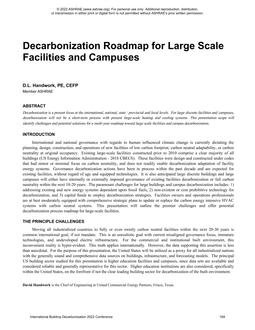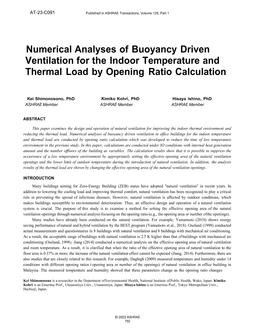Seminar 07 — Artificial Intelligence for Environmental Modeling
Click here to purchase
This product is a zip file that contains files that consist of PowerPoint slides synchronized with the audio-recording of the speaker, PDF files of the slides, and audio only (mp3 format) as noted.
The artificial intelligence technique can be used for both indoor and outdoor environmental modeling. It can significantly reduce the simulation time with similar accuracy compared to the computational fluid dynamics model. This seminar introduces the applications of artificial intelligence for predicting microclimate, indoor air pollution, and near-occupant conditions.
- Estimate Indoor Air Pollution Integration of Satellite-Derived Air Quality Data
Yang-Seon Kim, Ph.D., Member, Wichita State University, Wichita, KS
- Using Machine Learning in Wind Estimation for Microclimate Studies: Benefits and Pitfalls
Goncalo Pedro, Ph.D., Rowan Williams Davies & Irwin, Guelph, ON, Canada
- CFD-Trained Ann Model for Approximating Near-Occupant Condition in Real-Time Simulations
James Lo, Ph.D., Member, Drexel University, Philadelphia, PA
- A Novel Physics-Informed Algorithm for Training AI Models to Predict Indoor Airflow
Wangda Zuo, Ph.D., Member, Pennsylvania State University, State College, PA
Product Details
- Published:
- 2022
- Units of Measure:
- Dual
- File Size:
- 1 file
- Product Code(s):
- D-TO22Sem-07
- Note:
- This product is unavailable in Russia, Belarus
Seminar 07 — Artificial Intelligence for Environmental Modeling
Click here to purchase
This product is a zip file that contains files that consist of PowerPoint slides synchronized with the audio-recording of the speaker, PDF files of the slides, and audio only (mp3 format) as noted.
The artificial intelligence technique can be used for both indoor and outdoor environmental modeling. It can significantly reduce the simulation time with similar accuracy compared to the computational fluid dynamics model. This seminar introduces the applications of artificial intelligence for predicting microclimate, indoor air pollution, and near-occupant conditions.
- Estimate Indoor Air Pollution Integration of Satellite-Derived Air Quality Data< /br> Yang-Seon Kim, Ph.D., Member, Wichita State University, Wichita, KS
- Using Machine Learning in Wind Estimation for Microclimate Studies: Benefits and Pitfalls< /br> Goncalo Pedro, Ph.D., Rowan Williams Davies & Irwin, Guelph, ON, Canada
- CFD-Trained Ann Model for Approximating Near-Occupant Condition in Real-Time Simulations< /br> James Lo, Ph.D., Member, Drexel University, Philadelphia, PA
- A Novel Physics-Informed Algorithm for Training AI Models to Predict Indoor Airflow< /br> Wangda Zuo, Ph.D., Member, Pennsylvania State University, State College, PA
Product Details
- Published:
- 2023
- Units of Measure:
- Dual
- File Size:
- 1 file , 82 MB
- Product Code(s):
- D-TO22Sem07


